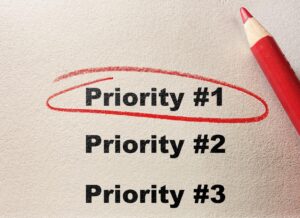George Tsarouchas, CEO & Founder at Dialectica.
Artificial intelligence (AI) is reshaping industries by processing vast amounts of data, automating routine tasks and enabling quicker decision-making. While AI’s capabilities can be transformative, it’s important to recognize that human insights remain indispensable, particularly in strategic and investment decision-making.
Although AI can provide valuable insights through data-driven analysis, it still largely lacks the nuance required for more strategic decision-making. Information sourced from public platforms—available to all—may lack accuracy and depth. Misinformation, incomplete perspectives and anonymous or unverifiable contributors can make it difficult to depend solely on these sources for sound decision-making.
In the expert network industry, I’ve found this synergy to be especially important. AI can help connect clients with suitable experts quickly by assessing data, but humans bring the nuanced understanding of specific client needs and industry context that can ensure the highest-quality matches. The combined strengths of AI-driven analysis and human strategic insight can allow expert networks to offer comprehensive solutions that are both data-informed and context-aware, thereby creating more impactful decision-making for clients.
The Rise Of AI In Business
AI has significantly impacted industries like finance, healthcare, marketing and the expert network industry by enhancing efficiency, accuracy and strategic capabilities. In finance, AI-driven algorithms can predict market trends, optimize portfolios and automate trading processes, helping institutions achieve better returns and reduce risks. AI’s uses in finance also include fraud detection and compliance checks to enhance security and regulatory adherence.
In healthcare, AI has revolutionized patient care by analyzing medical records, forecasting outcomes and recommending personalized treatments. For example, AI algorithms assist in early diagnosis of diseases by analyzing medical images, while predictive models can help healthcare providers improve patient management and optimize resource allocation.
The expert network industry has also benefited from AI’s capabilities. AI-driven platforms can help streamline the matching process between clients and experts by analyzing project requirements and expert profiles. In my experience, this typically leads to faster, more precise connections that help ensure clients receive the most relevant insights for their specific needs. Additionally, AI tools can analyze feedback and engagement metrics to improve the quality of expert recommendations and enhance client satisfaction, contributing to overall growth and efficiency in the expert network market.
However, AI’s reliance on historical data also highlights its limitations. AI systems are inherently data-driven, sometimes reflecting biases present in the data. This dependence can result in biased outcomes, particularly when historical inequalities are embedded in the datasets. Furthermore, AI lacks the ability to grasp the broader context of decisions, which can lead to missing out on critical factors like cultural, social and ethical implications that human experts are often uniquely equipped to handle. This limitation highlights the irreplaceable value of human insights in decision-making processes.
The Role Of Human Insights
In my work sourcing experts for companies across industries, I have found that having access to human expertise can bring nuanced knowledge, experience and contextual understanding that AI cannot currently replicate. This insight can be particularly valuable in strategic decision-making, where human intuition, real-time observations and interpersonal skills are especially important.
A knowledgeable expert should be capable of identifying emerging trends, foreseeing disruptions, and assessing risks and opportunities beyond what the data alone reveals. For example, a company may employ an expert who is especially skilled at evaluating corporate culture, governance and management quality—factors that are difficult to quantify but critical for long-term success.
In investment decisions, human judgment can also help evaluate broader implications, such as how a potential investment aligns with your strategic goals and company values. By integrating AI’s data-driven analysis with informed human insights, organizations can navigate complexities more effectively, which can, in turn, ensure that decisions are not only data-informed but also contextually relevant and aligned with broader market dynamics.
Combining AI And Human Insights For Informed Decision-Making
Here are some best practices for effectively integrating AI insights with human expertise:
1. Contextualizing AI-Generated Insights
Utilize AI to analyze datasets and generate actionable insights, then leverage human expertise to interpret these insights within a broader strategic framework. Your human experts should be able to provide context, evaluate patterns and foresee potential challenges to create a more comprehensive approach to decision-making that balances analytical rigor with strategic considerations.
2. Bias Mitigation
AI systems often carry biases from the historical data they are trained on, which can lead to skewed outcomes. Human experts play a major role in identifying and mitigating these biases. Best practices for bias mitigation include building diverse teams to review AI outputs, conducting regular bias assessments, and providing in-depth training to your employees on how to recognize and address these biases.
3. Fostering Innovation And Adaptation
AI can identify new opportunities by revealing inefficiencies or market gaps. Your human experts can add value by evaluating these opportunities within a broader industry and strategic context, thus aligning innovation with your business goals. Encourage cross-functional collaboration between AI engineers and industry experts to help ensure that new technological solutions are not only innovative but also practically applicable to the business environment.
4. Risk Management Integration
While AI excels in identifying risks based on historical patterns and statistical analysis, it lacks the ability to fully understand dynamic and emergent market conditions. Employ human experts who can provide insights on regulatory changes, geopolitical risks and other external factors. An integrated approach to risk management can allow you to create robust strategies to mitigate both known and emerging threats effectively.
5. Partnering With Third-Party Experts
If your company currently lacks expertise in specific areas that you want to reinforce using AI, consider partnering with third-party information services and industry experts who have deep knowledge in your required fields. Their goal should be to ensure that your AI-driven decisions are grounded in the latest and most relevant human expertise.
The Future Of Decision-Making In The AI Era
I believe the role of human expertise in decision-making will only grow in importance. By successfully combining AI’s analytical capabilities with the contextual understanding and foresight of human experts, you can better equip your organization to navigate the complexities of the modern market.
Forbes Business Council is the foremost growth and networking organization for business owners and leaders. Do I qualify?
Read the full article here











